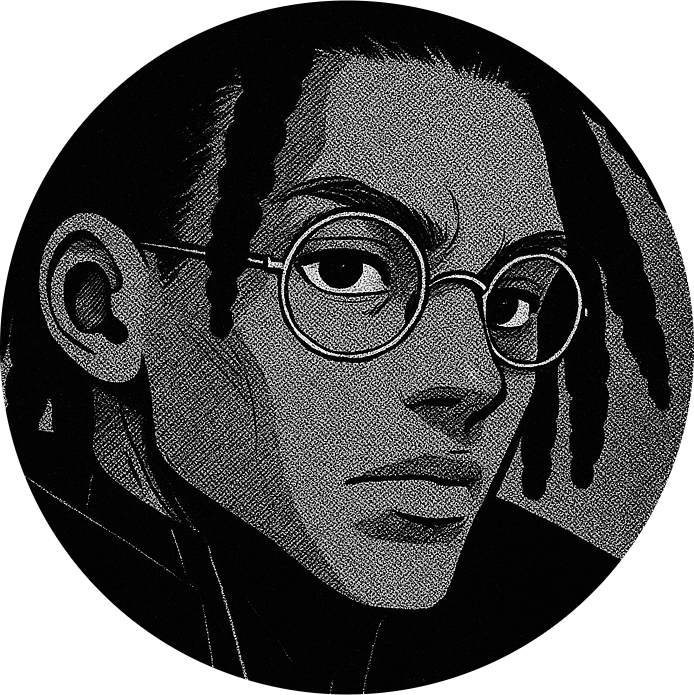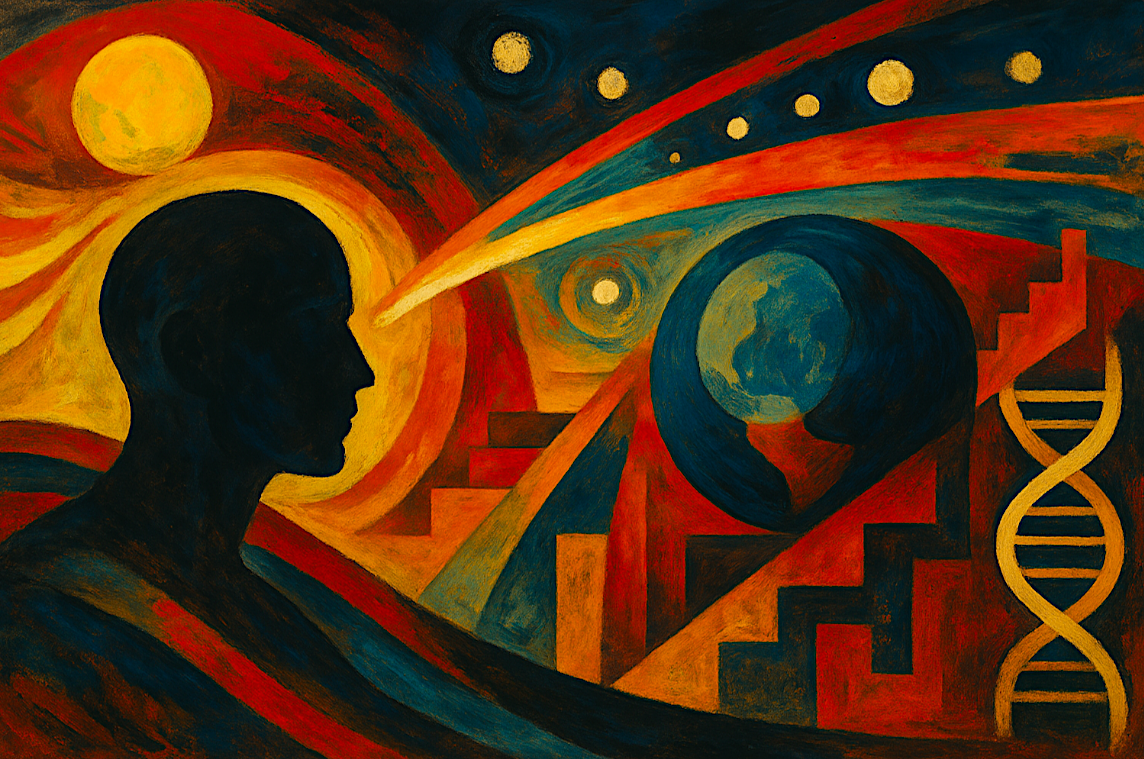The Cold Light

Okuhle Madondo
March 2, 2025

Humanity, in its youth, gazed upon the cosmos with a mix of awe and terror, weaving tales to tame the untamable. We were but infants, grasping at shadows, mistaking them for substance. Yet, from this primordial darkness, a flicker of light emerged—reason. With it, we shattered the illusion of a flat world, unveiled the heliocentric dance of planets, and traced our lineage not to divine decree but to the humble origins of life itself.
Our journey has been one of relentless ascent: from mastering flame to unlocking the atom’s heart, from the first wheel’s turn to the global web that binds us. We have banished plagues that once gnawed at our flesh, prolonged our fleeting days, and shrunk the vastness of the world with our ingenuity. The arc of our progress bends toward the infinite—toward a horizon where the chains of biology might finally snap.
And yet, even as we teeter on the brink of transcendence, many remain anchored to the past. They kneel at the altars of dead gods, their eyes shut tight against the glare of discovery. They cling to echoes of a bygone era, where shadows flickering on cave walls were mistaken for the real. These are not mere relics of thought—they are anchors, dragging us back into the mire from which we clawed our way free.
We once believed the heavens spun around us, that the stars were mere ornaments for our petty dramas. The universe whispered otherwise, and through the reluctant ears of men like Copernicus, we learned we are not the axis of creation. Later, Darwin’s cold gaze stripped away the last veneer of our arrogance, revealing us as but a single thread in the sprawling tapestry of life—not its weaver, not its purpose, just another strand. Still, the delusion persists: that we are chosen, that the cosmos bends to our whims. This is no innocence—it is hubris, a refusal to see the mirror held before us.
Now, we stand at a precipice. One path sinks into stagnation, a slow suffocation beneath the weight of our own fears. The other rises—toward a future where we wield our intellect as both tool and torch, crafting ourselves anew. This is no fantasy; it is the inevitable fruit of the seeds we have sown. Our path glows with the light of science, beckoning us to shed the frail husk of what we are and become something more.
For what are we, if not the sum of our parts? Our actions spring not from some ethereal will but from the machinery of our being—our genes, our scars, our accumulated truths. To deny this is to deny the very weave of existence. We are not adrift in chaos; we are bound by cause, shaped by the forces that birthed us. Accept this, and we might yet mold a world unbound by the frail limits of flesh and time.
To spurn this call is to court ruin. Look back—the wreckage of ignorance litters our history: wars waged for phantoms, lives crushed beneath the heel of dogma. But when we turn our faces to the unknown, when we dare to question and to grasp, we rise. We thrive. The evidence is etched in our bones, in the cities we’ve raised, in the skies we’ve pierced.
Let us not falter now. Let us not be the generation that cowers, clutching superstitions like tattered blankets against the cold light of reason. We are no longer the trembling children of the dark. We are the inheritors of a legacy forged in fire and inquiry—a legacy that demands we step boldly into the dawn, not as masters of the universe, but as its humble students, its relentless stewards. The stars do not wait. Nor should we.
Continue Reading
The Quartet - For The Layman
2 July 2025
The 'Quartet' made accessible to the average, non-technical person.

